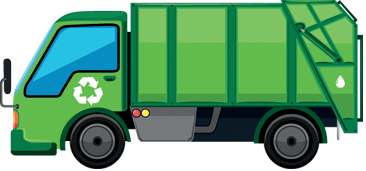The United Kingdom might be a world leader in certain departments, but when it comes to recycling and regulations outlining it, there seems to be a lot of feet dragging. The ineffective recycling policies in effect throughout the United Kingdom aren’t only to do with lack of will or lack of understanding on behalf of policy makers, twenty fifteen also turned out to be a year of various challenges to be faced by everyone, from businesses, to waste management industry, to politicians and economic policy makers.
 One of the most evident problems in the chain of recycling in the UK is plastic. This is not to do with ineffective plastic rubbish removal or something similar, but a complex chain of local and worldwide events.
One of the most evident problems in the chain of recycling in the UK is plastic. This is not to do with ineffective plastic rubbish removal or something similar, but a complex chain of local and worldwide events.
Plastic recycling regulations are not only outdated, they are also backward in many ways. The plastic recycling industry in the United Kingdom is basically on its knees for most part of twenty fifteen. First of all, the falling oil prices have also brought down the price of so called virgin plastic i.e. new plastic made through traditional oil refining industry methods. Second of all, companies in the United Kingdom don’t have the economic incentive to buy and use recycled plastic since it is cheaper than recycled plastic. Last but not least, government regulations are requiring companies to do it, and why should they – no business would be willing to pay more for raw materials when they can obtain them cheaper, though in a not-ecofriendly way.
In such times of economic austerity businesses, industry and government are truly testing the ‘moral compass’ of large companies in the United Kingdom. At the moment, large British brands are chasing reduction of operating costs as austerity and cuts left, right and centre are leaving some companies gasping for air. So naturally, such businesses are restructuring and reorganising their means of operation solely for the purpose of reducing cost. Should the economic situation be different, the large players in the economy would be able to support the country’s circular economy and still keep their running costs at the proper levels. To swing things back to plastic – large brands are finding it cheaper and more efficient to buy virgin plastic for manufacturing of their products and packaging, as opposed to buying recycled plastic (which is just as technologically suitable) but more expensive at the moment.
Industry specialists say that before coming out the woods, there will be a big storm – in economic terms. Oil and fossil fuel supplies are diminishing by the day, despite their cheap market right now. The world is changing, so is the way of doing business and manufacturers and big companies will have to eventually wake up to the facts. Oil prices will grow rapidly in the next one to five years and so taking a gamble with recycled materials such as plastic right now, will reap many rewards later on when the old balance is renewed. Perhaps the only branch of business to be taking that gamble right now is the UK’s dairy industry.

